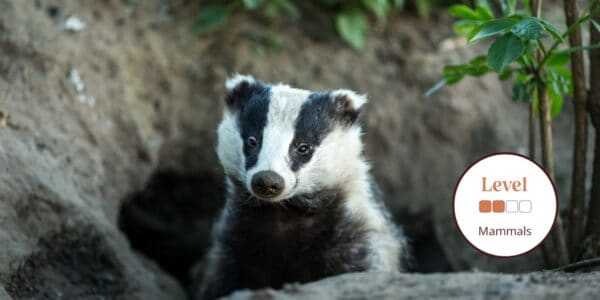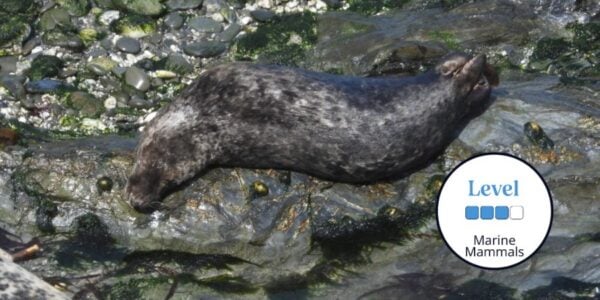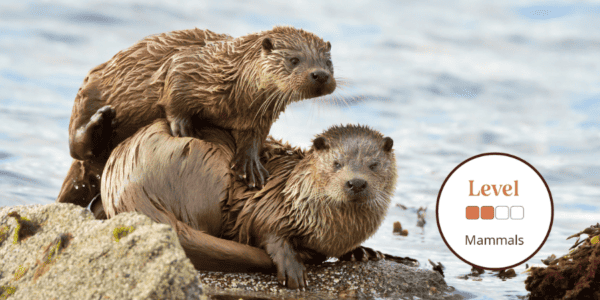This beginner to intermediate course will provide an introduction to Otters and Water Voles in the UK. You will learn about the ecology and conservation of both species and explain what to look for and how to conduct surveys.
This course will include:
- Otter behaviour, natural history, status and legal protection. Identification of field signs and where to look for them.
- Water Vole behaviour, natural history, status and protection. Identification of field signs and where to look for them.
- Practical experience surveying for otters and water voles with an expert tutor.
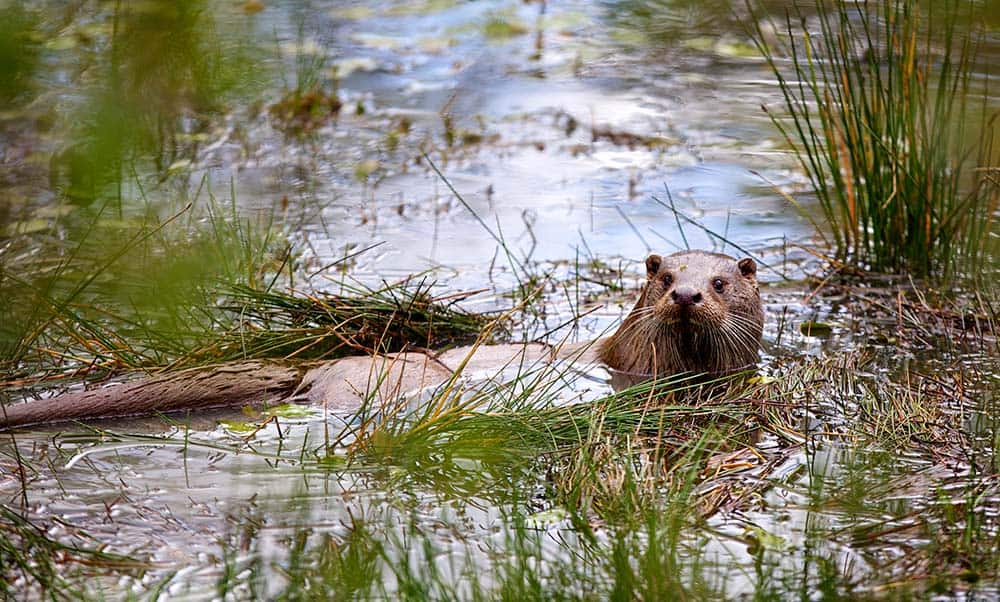
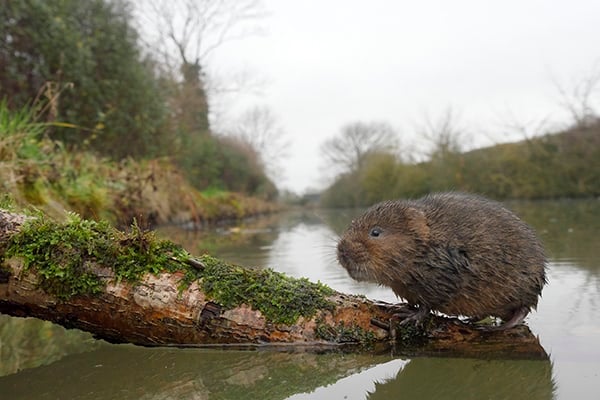
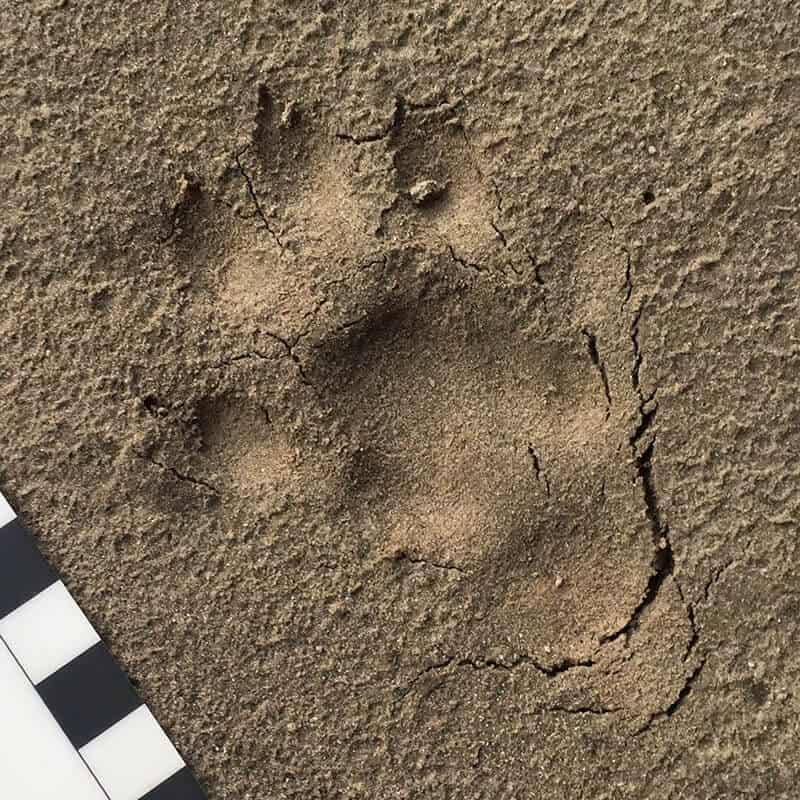
Read More
Otters nearly vanished from our waterways in the second half of the 20th century and water voles are facing similar challenges today. This course will cover the ecology and conservation of both species and explain what to look for and how to conduct surveys.
By the end of the course, you will be able to:
- Understand and engage with presentations on Otter and Water Vole ecology.
- Understand current legislation and conservation methods currently in place to protect and conserve otters and water voles.
- Learn to differentiate between otter spraint & tracks/water vole signs and field signs of other mammals that are likely to be found in similar locations.
Who Should Attend? – Nature enthusiasts, students, rangers, early career consultants and ecologists.
Knowledge Level – Beginner to intermediate. Level descriptors can be found on the following web-page: Framework and Course Level Descriptors.
Prior Knowledge – No existing knowledge or experience is needed for this course, just a willingness to explore and learn.
PLEASE NOTE: There is no accommodation or meal facilities provided with this course. Refreshments (tea and coffee) will be available. If we are unable to reach viable numbers for this course, we will inform you of the course cancellation 4-5 weeks prior to the course run. We would recommend when purchasing accommodation and/or travel you should take out your own insurance.
Bookings will close if course capacity is reached.
Please email [email protected] if you have any questions.
About the Tutor
Vivien Kent
Vivien Kent is a Wildlife Biologist with over 20 years’ experience of researching and working with carnivores in southern Africa and the UK. For the past 10 years she has been focussing on otters in the UK – one of our most charismatic species. She is a member of the IUCN SSC Otter Specialist Group and co-founded The Otter Network in north-east England.
Example Timetable
Please arrive in time for the course to start promptly at 9:45am.
There will be a 45-minute lunch break during the day. Lunch is not included so please bring your own food.
Refreshments (tea and coffee) will be provided.
The course will finish at 16:30pm.
What's Included
The course has been carefully created by expert tutors and educators to help you build your knowledge and apply it within the field surrounded by like-minded individuals.
The course includes:
- Classroom learning covering the theory of the species
- Field excursions to apply new knowledge
- Expert tuition for which the Field Studies Council is renowned
- Clear objectives and progression
- Refreshments (tea/coffee)
You can rest assured that the absolute best content from an expert in environmental education will be provided. In choosing a Field Studies Council course, you will be joining thousands of people who learn with us each year.
Bursaries and Subsidies
Student Discount
This course is eligible for a student discount. If you are a current student, please use discount code BioStudent20 at checkout for 20% off all Biodiversity courses.
Natural History Bursaries
There are a number of natural history bursaries available to help with the cost of your course. To find out if you and your chosen course are eligible, read more here.
Before You Attend
What to Bring
- Notebook and pencil
- Lunch and refreshments
- Sensible footwear and clothing for being outdoors
- Small bag to carry personal items
If you have them:
- Binoculars would be useful
- Surgical gloves for handling spraint and scat
Recommended Literature
When you book onto this course, you will be sent a discount code for the below Field Studies Council recommended literature.
There will be a member of staff with first aid training and access to a first aid kit on site. If you have special medical or access requirements, please let us know as soon as possible so we can plan the course.
Opportunities to attend this course
This course is not currently available to book. Dates will follow soon.
Sign up to our Email Newsletter
No current dates for this course? Click here to view all the upcoming Natural History courses.
Progress Your Learning
This is a training course from the Field Studies Council, delivered by expert tutors with an approachable learning style. After attending this course, you may like to progress your learning with further relevant courses or branch out into other areas of natural history. The Field Studies Council offers both online and in-person courses, so you can choose the learning style that suits you best.
The course gives you the opportunity to immerse yourself in a new subject and acquire novel skills. Our online portal gives you time to study at your own pace and fit the lessons around your own schedule.
If you have any questions about our courses please check out our Frequently Asked Questions or email [email protected].
Group Bookings Made Easy
If you have a group of 10 or more individuals wanting to complete one of our courses, our team are available to discuss your options – from discounts to private team courses. Find out more!
You can rest assured that the absolute best content from an expert in environmental education will be at your fingertips. In choosing a Field Studies Council course, you will be joining thousands of people who learn with us each year.

